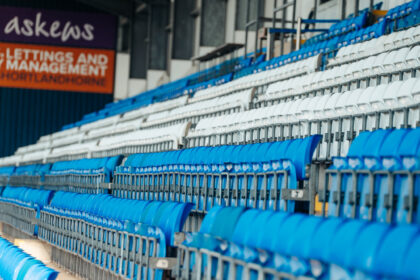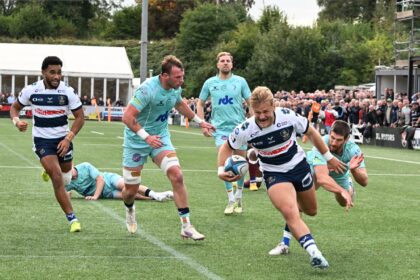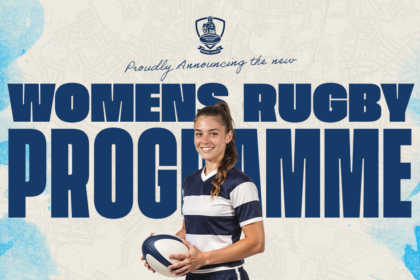

I Can Play…
COVENTRY Rugby’s community department is set to launch an exciting I Can Play project in special educational schools around the city.
Starting after the October half-term break and with funding from the Big Lottery Fund, the new venture will see Coventry’s experienced community coaches deliver weekly extra-curricular multi-activity clubs in eight primary and secondary schools for children who have profound and multiple learning difficulties (PMLD) and are also likely to have additional physical or sensory impairments and autistic spectrum conditions.
The coaches will lead each two-hour session, assisted at each school by a member of staff who has specific knowledge about the individual needs of the children involved.
Over an 18-week period the children will take part in a range of physical activities and fun games (multi-sports, adapted rugby, agility etc) and the focus will be firmly on helping them enjoy themselves, making and cementing friendships, helping them to find an activity they enjoy and would like to continue playing, and helping improve their health, mobility and physical development.
“At the end of the school year, we will organise a full day festival at Coventry’s Butts Park Arena ground to celebrate the efforts and achievements of the children,” said Matt Price, Coventry’s head of community.
“This will involve primary students in the morning and secondary in the afternoon playing demonstration games and tournament events. Parents will be invited along so they can see the progress their children have made and to demonstrate their capabilities – this is important as parents are often very protective when their children have PMLD and regularly underestimate their children’s physical and social capabilities.
“Very importantly, our coaches will deliver two training sessions to multiple staff and volunteers at the schools, helping to equip them with the knowledge and skills necessary to continue organising fun and high quality extra-curricular physical activity sessions for the children after our 18-week input at the schools has ended.
”We hope that by doing this the children continue to have access to fun, active, social opportunities, and the benefits to their health and wellbeing are sustained for years to come.”
Added Price: “We will be working with children who have profound and multiple learning difficulties which affect every aspect of their life and will do so long into the future. It means the children require intensive support in many aspects of their daily lives.
“Many suffer from additional physical disabilities or complex health problems which can mean that they do not, or find it difficult to, participate in the regular exercise they need in order to maintain good health and fitness, and maximise their physical development and mobility levels. Obesity is generally much higher among people with PMLD than among the general population.
“In addition to these exercise problems, because of the various needs and barriers they face it can be difficult for these children to take part in recreational activities which can leave them feeling very isolated compared to non-disabled children of a similar age.
“This isolation can have a serious negative impact on their emotional health and wellbeing, so our project is needed to give children access to more activities which ensure they spend regular social time having fun with others and will help boost their health.
Research shows that the health and wellbeing of children growing up in Coventry is below the overall average for England. More children are overweight at age 10 (37.5%) and over a quarter of children grow up in poverty (Coventry Child Health Profile 2017). Poor health and obesity is generally down to poor diet (which can be strongly linked to poverty) and a lack of activity. In England, only 21% of boys and 16% of girls aged 5 to 15 achieve recommended levels of physical activity (Government: Childhood Obesity report).
“Children who have PMLD naturally have a harder time than other children finding suitable physical or extra-curricular activities to take part in,” said Price.
“A number of the schools involved in the project told us that many parents thought their children weren’t really able to take part in games or sports. This is incorrect, and parents and staff need us to demonstrate that their children are able, given the chance and support necessary, to play. Staff also told us they would value the chance to gain extra knowledge and skills re how to run these extra-curricular sessions.
“Mencap research has found that around 40% of children with learning disabilities experience mental health problems such as emotional distress – this is attributed to increased risk of social exclusion and loneliness. Children with PMLD are especially vulnerable to these because there are less social opportunities available for them to access.”

























